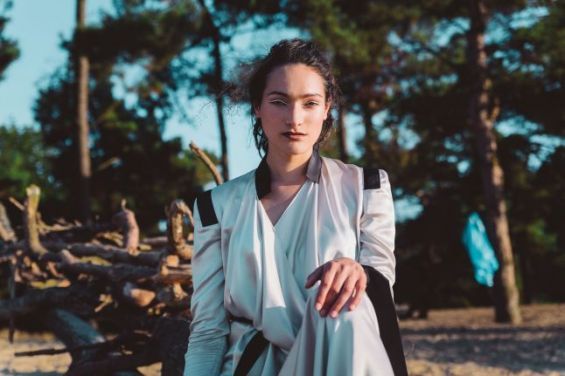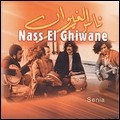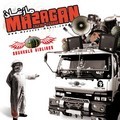Overcoming peer pressure, Karima El Fillali, a young Moroccan-Dutch artist living in Amsterdam has chosen to opt for classical Arabic music. Born in a small village called De Lier in the Netherlands to a Moroccan father and a Dutch mother, Karima fell in love since an early age with her Moroccan origins. Beside her love for music, she showed a great interest in the language of her African ancestors. «My mother was a guitar musician, and her family is Christian, so they would always sing in the church (…) We would be singing all the time», Karima told Yabiladi insisting that when it came to music she «had a strong preference for classical music and most precisely Arabic music».
The 30-year-old singer first got on stage when she was just a 16-year-old student. She first heard about Oum Kelthoum in her father's van where he used to play songs of the great Egyptian artist. Karima got introduced later to the singer during an Amdah session in Fez. «They told me if I wanted to learn this I should listen to Oum Kelthoum», she said.
 Karima El Fillali./Ph. Petra Richterova
Karima El Fillali./Ph. Petra Richterova
«The more Mediterranean the songs were, the more I had fun singing them, so at the beginning I started singing a lot of Portuguese Fado music, and then I heard Arabic music and was amazed. I wanted to sing it but then I had the language barrier».
Enchanted by the melody, the instruments and the authenticity, Karima felt hooked on the spot. Although she was not a fluent Arabic-speaking artist, the experience reminded her of her country of origin, Morocco. When asked about her ability to perform in Arabic, Karima replied: «I am very bad at speaking Arabic, so for instance, when there is a poem that would need to learn, I would really work on it to make sure I can deliver it well».
Indeed, Karima managed to sing old songs such as «Ya Jarat al Wadi», one of the most classical songs ever sung. To overcome her struggle with the language, Karima had Quran recitators help her pronounce words and sounds and took Tajwid classes. She has even traveled to Morocco to learn Arabic. «I had decided to go to Morocco to learn about traditional music such as Gnawa and Classical music. I took Arabic lessons and found myself an Arabic singing teacher. This is how it all started», she stated adding that «it was in 2011 and it lasted for 9 months».
Embracing her roots
As abovementioned, Karima is the black sheep, who chose to drop what is considered mainstream. «Our generation was raised with hip-hop music, I used to look for all sorts of music … African, Sahrawi, Flamenco so I had all these influences», she said, «however, I tried to make my own thing influenced by everything».
For the moment Karima is a member of a band that she created with two of her friends and named Shakuar. She also has a lot of ongoing projects when it comes to singing, writing and playing her favorite instrument (Guenbri). «I am doing different projects. I am seeing classical music as a path and as a school to learn from, but also as something that I love to do», Karima explained.
 Karima El Fillali and her band Shakuar./Ph. Khalid Amakran
Karima El Fillali and her band Shakuar./Ph. Khalid Amakran
«Beside classical Arabic music, there is more experimental projects that I do for films... I also worked for a dance theater and now I am preparing for another album for my own band. There is currently one song online but we will release the others as soon as the album is finished», she said.
For the young artist, discovering her Moroccan heritage was a «deliberate choice, a journey that I consciously took on», she clarified adding that her «Western side is and will be an intrinsic part of who I am as a person and as an artist». While living in a country where different ethnic communities coexist and where everybody is on a journey trying to figure out their dual identity, to Karima, learning and getting inspired from both sides is a strength but also a curse. «When you are of dual heritage, society always questions your identity : what are you ? You are neither this nor that, yet you are this and that», the young musician argued. The answer that convinced Karima the most is acceptance.
With her Guenbri in her hands and her ambitions, dreams and creativity, Karima is there to conquer the world. She is a role model to all those Moroccans living in the Netherlands and looking forward to reconnect with their roots. «I think that there is a real desire for young people here to reconsider their own heritage, because when you live in a country like the Netherlands, if you turn on the TV, you won't find a representation of every single community», she stated adding that «in (her) generation, there is a new movement of youths who are discovering traditional music».
Being able to embrace her differences, and love her heritage, Karima's voice, performance, and life goals make her a passionate musician and human being. She is committed to learn more about Morocco and music.




 chargement...
chargement...












